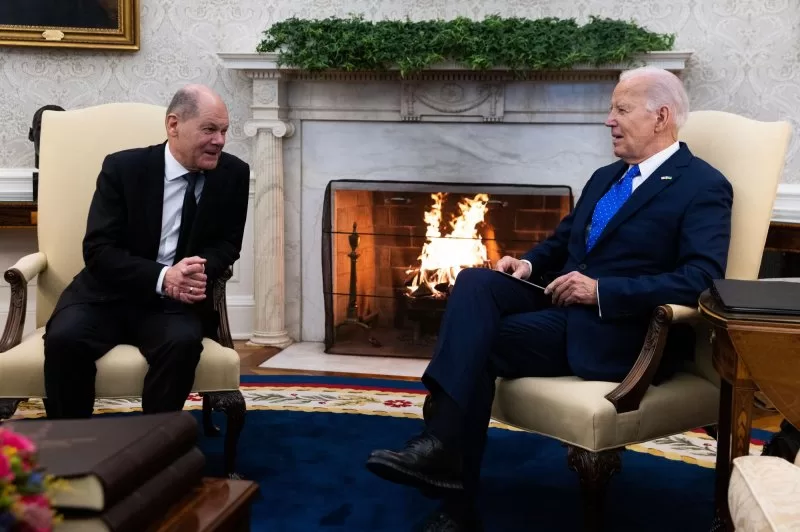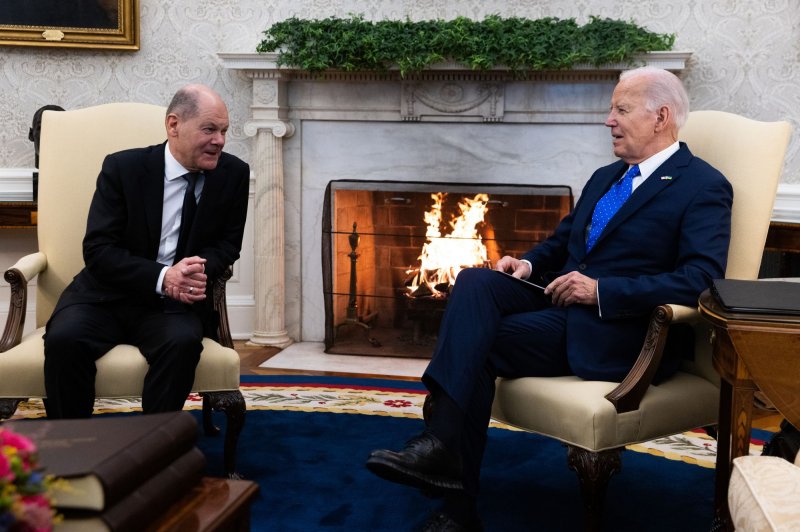1 of 3 | President Joe Biden and German Chancellor Olaf Slcholz meet in the Oval Office at the White House in Washington, D.C., on Friday. The two leaders emphasized the importance of sending more military aid to Ukraine as Congress debates a modified spending bill. Photo by Julia Nikhinson/UPI |
License PhotoFeb. 9 (UPI) — President Joe Biden hosted German Chancellor Olaf Scholz for a bilateral meeting at the White House Friday.
In opening remarks, Biden thanked the German chancellor for his leadership and doubling Germany’s military funding for Ukraine in its war with Russia.
Biden said the two leaders will discuss the work the United States and Germany will do together to strengthen NATO ahead of the 75th NATO Summit, as well as the efforts of the United States to negotiate hostage releases in Gaza.
Scholz said Germany and the United States have a role to keep peace in the world, “especially so looking at the Russian aggression against Ukraine, which is still ongoing.”
The German chancellor threw barbs at Russian President Vladimir Putin, calling his interview with former Fox News host Tucker Carlson “ridiculous” and describing his motives behind the Ukraine war as “just imperialism.”
“And I think it is necessary that we do all our best to support Ukraine and to give them the chance to defend their country,” Scholz said.
Scholz emphasized the importance of Congress following Biden’s lead on Ukraine, “because without the support of United States and without the support of the European states, Ukraine will have not a chance to defend its own country.”
Biden echoed Scholz’s sentiment, saying if Congress fails to vote on sending more aid to Ukraine, it is “close to criminal neglect.”
Quoting the late Secretary of State Henry Kissinger, Biden said, “Not since Napoleon has Europe not looked over its shoulder and worried about Russia — until now.”
The Senate is attempting to rally enough votes to pass a $95 billion foreign aid bill that includes $60 billion in aid for Ukraine.
The modified bill leaves out any provisions for boosting security along the U.S.-Mexico border, which has been a contested point among Republicans.

